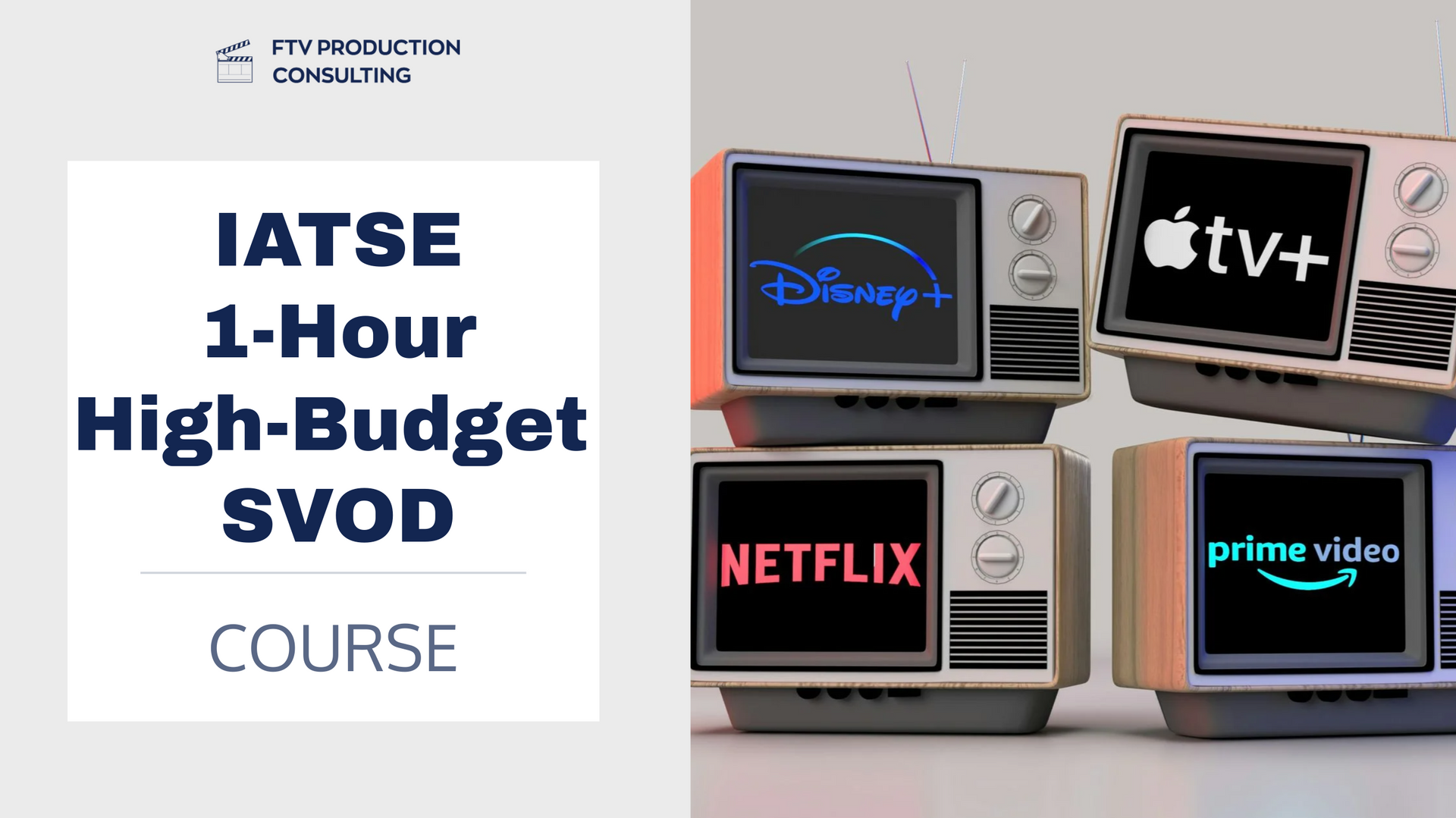Setting Up Payroll for Union Productions: Best Practices for a Clean Audit Trail

Setting up payroll for a union production is not just about ensuring people are paid correctly and on time. It is about creating a clean, defensible audit trail from the beginning. In the entertainment industry, union productions are subject to intense scrutiny from multiple stakeholders including unions, benefit funds, and sometimes even state or federal agencies. One misstep during setup can trigger audits, penalties, and damage relationships with key industry partners.
A clean audit trail means structuring payroll processes to capture, document, and preserve every key decision, data point, and approval related to wages, fringes, and working conditions. If you are planning a union shoot, whether it is a feature film, a series, or a commercial, laying the right foundation up front will save enormous headaches later.
This guide outlines best practices that will help you set up payroll properly, stay compliant with union contracts, and pass any audit with confidence.
Start with a Strong Project Setup and Signatory Process
The first step toward a clean audit trail happens before the first paycheck is issued. Every union production must have a properly executed signatory agreement with the relevant unions. This agreement confirms that the production company is bound by the terms of the applicable collective bargaining agreement, or CBA.
It is critical to ensure you have signed with each relevant union before hiring any covered employees, such as SAG-AFTRA, DGA, WGA, IATSE locals, and Teamsters. A thorough project setup form should be completed, capturing essential project details like the type of production, platform, budget, and location. From there, selecting the correct contract profile in your payroll system is key. The profile should apply the correct wage minimums, overtime rules, and benefit rates based on the project type.
To safeguard yourself during an audit, save copies of all signatory agreements, completed setup forms, and CBA profiles used in system configurations. If there is a dispute later, you will have documentation that supports your decisions.
Capture Accurate Employee Data During Onboarding
Employee onboarding is a major risk point for compliance errors. Missing forms, misclassification of job titles, or incorrect union affiliations can cause underpayments, incorrect deductions, or misapplied benefits.
A strong onboarding packet should include union start paperwork such as start forms, dues authorization forms, and benefit enrollment forms, along with standard forms like the W-4, I-9, and direct deposit authorization. Be sure to capture the state where the employee is hired and where they are working, as tax withholdings and wage laws vary significantly between locations.
It is important to verify each employee’s union status at hire, not after the first paycheck. Confirm if they are a current member, non-member, or must-join. Assigning the correct union-specific occupation codes at the time of onboarding is crucial because it directly impacts wage rates and fringe contributions.
Keeping all onboarding documents organized and electronically stored by employee is essential. When an audit request comes in, you need to be able to retrieve these documents quickly.
Lock in Wage Rates, Guarantees, and Fringes Up Front
Before anyone steps on set, you must know exactly what each employee will earn and how their benefits will be calculated. Attempting to retroactively fix wage rates once payroll is running is both messy and risky.
Detailed rate sheets should be prepared by department and job classification, pulled directly from the union contracts. If an employee has a daily or weekly guarantee, make sure it is documented in writing at the time of hire. Guarantees are common for crew minimum calls and for principal cast members who often have weekly guarantees.
Make sure your payroll system accurately maps each role to the correct pension, health, and welfare contribution rates. Establishing these calculations before payroll starts ensures that fringe reporting will be accurate from the beginning.
Save copies of rate sheets and guarantee agreements to create an audit-ready record of how compensation was determined.
Implement a Timecard Review and Approval Workflow
Inaccurate timecard submissions are one of the biggest causes of payroll discrepancies. Without a standardized review process, key items like meal penalties, overtime premiums, or travel pay can be missed.
Using a digital timecard system helps maintain clean records by timestamping submissions, approvals, and edits. Require department heads such as gaffers or first assistant directors to review and approve timecards before they are processed for payroll.
Make sure your timecard system includes fields specifically designed to capture union-specific pay events such as meal penalties, forced calls, rest period violations, and turnaround violations. These categories should be easy to identify and track separately.
Saving approved timecards along with the associated approval logs is critical. Union or benefit fund auditors often request these documents when verifying payroll and fringe calculations.
Maintain Clear Benefit Reporting Practices
Payroll setup for union productions is not only about wages. It is equally about correctly calculating, deducting, and remitting benefits to the appropriate union trust funds. Improper benefit reporting is one of the most common triggers for audits.
Separate benefit remittance reports should be generated for each union trust fund, showing gross wages, hours worked, contribution rates, and amounts due. Conduct regular reconciliations, at least monthly, comparing what was paid in fringes to what was remitted. This process will help catch discrepancies early.
Employee deductions, such as IATSE dues check-offs, should always be tracked separately from employer-paid fringe contributions. This separation creates clarity during audits and helps avoid misinterpretation of reported figures.
Maintaining benefit remittance reports organized by reporting period and union makes it easier to respond to benefit audit requests.
Store Records in an Organized, Accessible System
Records retention is not optional. Many unions and benefit funds require that payroll, timekeeping, and benefit records be kept for three to seven years depending on the applicable collective bargaining agreement and local legal requirements.
Electronic storage is preferable because it enables quicker retrieval and better backup protection. Organize records by project name, union affiliation, and production year. Limit editing access after original data is submitted to preserve the authenticity of the records.
Conduct internal tests regularly to ensure your team can retrieve random documents efficiently. A mock audit once a year is a smart way to identify any gaps in your storage practices before a real audit exposes them.
Stay Current on Union Agreements and Audit Requirements
Union rules evolve constantly. Wage increases, benefit contribution changes, and working condition revisions happen frequently. It is critical to stay current on all applicable updates.
Review union agreement updates regularly, paying particular attention to wage rates, rest period rules, and new benefits requirements. Train payroll and production teams at least once a year on these changes, and update internal procedures accordingly.
Using a customized union payroll audit checklist can help keep your team aligned with each union’s current requirements and can serve as an internal quality control measure.
Subscribing to union bulletins, negotiating committee updates, and benefit fund notifications can also help you stay informed. Assigning responsibility to a compliance officer or labor relations consultant to track these updates ensures changes are not missed.
Final Thoughts
Building a clean audit trail for union payroll is not about working harder, it is about working smarter. Compliance and documentation should be embedded into every stage of the process, from project setup through final payment.
A production that takes the time to properly onboard employees, verify wage rates, document approvals, and maintain organized records is setting itself up not only for a smooth audit but also for long-term trust and reliability in the industry.
In today’s entertainment landscape, where union compliance is under more scrutiny than ever, getting payroll setup right from the start is a strategic advantage. Productions that prioritize proper payroll structure and recordkeeping demonstrate their commitment to professionalism, fairness, and industry best practices.









